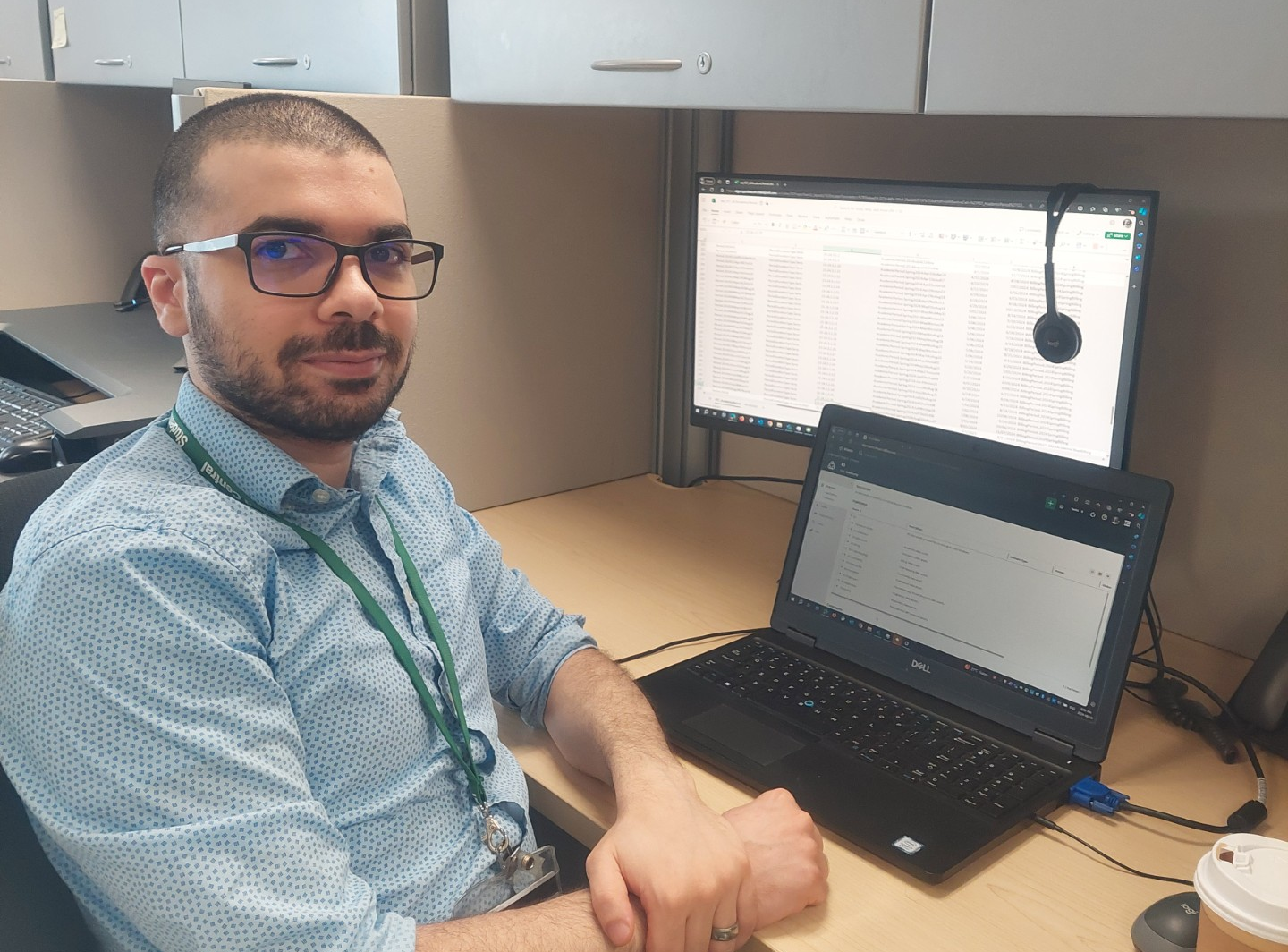Special interview: Michael Kahil explains data migration in the R3 Project
Posted on Friday, August 16th, 2024

The R3 Project is replacing Algonquin College’s current Student Information System (SIS), GeneSIS, with Thesis SM. This means that all the important data GeneSIS has stored for nearly three decades needs to be migrated to the new SIS.
Igor Coelho A. S. Marques sat down with Michael Kahil, a data migration expert on the R3 Project’s Data Governance team, to chat about data migrations. Here’s a snippet of their conversation:
 |
Igor Coelho A. S. Marques
How is migrating data from GeneSIS to Thesis SM more complicated than simply copying and pasting things? |
 |
Michael Kahil
Great question. Information like student records can be simple to migrate because both systems have fields for things like student number, name, date of birth. But the new system can also have different functionalities and fields that require data that doesn’t exist yet or that isn’t formatted to match the new fields. |
 |
I. Marques
I see. Then what do you do when Thesis SM requires data that GeneSIS doesn’t have? |
 |
M. Kahil
We have to stitch together existing source data so that it matches the requirements of the new fields. For example, we’ve had to get data for billing periods since 1987 so our billing records could migrate properly to Thesis SM. There’s not always a clear data source either, so we have to do a lot of problem solving.
Migrating data is less “Ctrl+C, Ctrl+V” and more like heart surgery: we have to figure out how to connect the data we have in a way that’ll work in Thesis SM. |
 |
I. Marques
Heart surgery sounds intense. Considering the stakes, how does your team get ready for a data migration? |
 |
M. Kahil
We define the scope of the migration, map the migration’s requirements, populate the Thesis-provided templates with our data, and then run a lot of validation tests. Validation can get really busy because we might get warnings or errors that we need to address to make sure there are no mistakes. Everything has to be perfect. |
 |
I. Marques
I’ve heard from programmers that even a comma in the wrong place or an innocent typo can have serious consequences. |
 |
M. Kahil
That’s right. We’ve had a situation where we got a validation error and couldn’t figure out why. After troubleshooting, we realized that we were dealing with data from an older system that used a different sort of space. You can’t tell by looking at it, you know, it’s just space. We replaced the “old” spaces with “modern” spaces, and the error went away.
Thankfully, we’ve always been able to solve issues during validation and all our data migrations have been successful. |
|
“Migrating data is less ‘Ctrl+C, Ctrl+V’ and more like heart surgery. Everything has to be perfect.”
|
 |
I. Marques
I think that’s a testament to your team’s attention to detail. What happens after you validate the data? |
 |
M. Kahil
After validation, we package our data together and upload it to a database. Thesis then downloads this huge package and migrates it into Thesis SM, which takes about a day to complete because of how much information we’re migrating. |
 |
I. Marques
Your team has recently completed an important data migration. What can you tell us about it? |
 |
M. Kahil
We’ve made substantial advancements in every module, including academics, billing, admissions, registration, and many more. We’re at the point where we’re starting to see what we need to do to complete each module, and that’s exciting for us. |
 |
I. Marques
That’s awesome. Thanks for all the work your team does! |
*
Did you enjoy this interview? Let us know by sending us a message. Before you go, make sure to sign up for the next R3 Showcase Event to learn more about the R3 Project!
Comments


